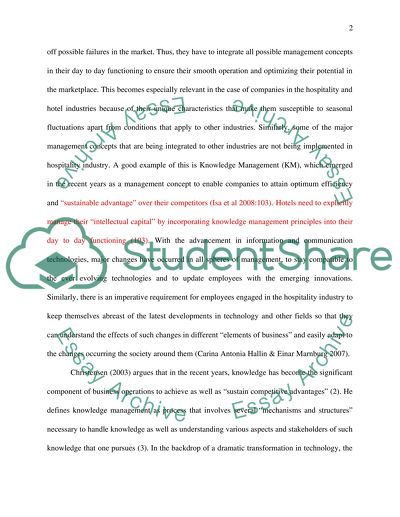Cite this document
(“The impact of knowledge sharing on Hotel Industry effectiveness in UK Literature review”, n.d.)
The impact of knowledge sharing on Hotel Industry effectiveness in UK Literature review. Retrieved from https://studentshare.org/information-technology/1494885-the-impact-of-knowledge-sharing-on-hotel-industry
The impact of knowledge sharing on Hotel Industry effectiveness in UK Literature review. Retrieved from https://studentshare.org/information-technology/1494885-the-impact-of-knowledge-sharing-on-hotel-industry
(The Impact of Knowledge Sharing on Hotel Industry Effectiveness in UK Literature Review)
The Impact of Knowledge Sharing on Hotel Industry Effectiveness in UK Literature Review. https://studentshare.org/information-technology/1494885-the-impact-of-knowledge-sharing-on-hotel-industry.
The Impact of Knowledge Sharing on Hotel Industry Effectiveness in UK Literature Review. https://studentshare.org/information-technology/1494885-the-impact-of-knowledge-sharing-on-hotel-industry.
“The Impact of Knowledge Sharing on Hotel Industry Effectiveness in UK Literature Review”, n.d. https://studentshare.org/information-technology/1494885-the-impact-of-knowledge-sharing-on-hotel-industry.


